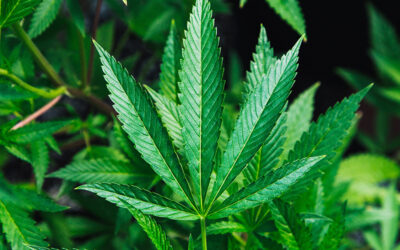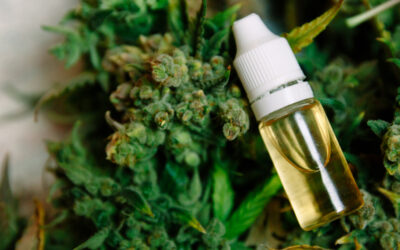This week:
- Study Finds Your Doctor is Probably More Worried About Your Weight than Your Marijuana Use
- UK to Send Foreign Doctors Home
- Certified Seed and CBD Hemp US Hemp Industry Take Root
- Why More Parents Are Starting to Use Marijuana
- CTE Detected on NFL Player’s Tau Scan
Doctors in the United States are not terribly concerned about adult marijuana use, according to a study published recently in the Proceedings of the National Academy of Sciences (PNAS).
Researchers presented a representative sample of 233 primary-care physicians with a list of behaviors including: tobacco use, alcohol use, obesity and marijuana use among others. These behaviors were then ranked in order of highest concern to lowest.
Among the behaviors doctors rated, not wearing a helmet while riding a motorcycle and having numerous sex partners as the most worrisome behaviors. Doctors then rated alcohol use, tobacco use and obesity as significantly more pressing issues, health-wise, than marijuana use.
The findings add empirical strength to an essay in Scientific American written by physician Nathaniel Morris, wherein he mentions: “for most health care providers, marijuana is an afterthought… In medicine, marijuana use is often seen on par with tobacco or caffeine consumption – something we counsel patients about stopping or limiting, but nothing urgent to treat or immediately life threatening.”
Polls show that a significant majority of doctors approve of medical marijuana use and some doctor’s groups are even adopting an official pro-legalization stance. The California Medical Association supports the ballot measure (# 64) that would legalize the recreational use of marijuana within the State.
Overall, doctors’ mild concern about the marijuana use is not surprising, given what research shows about the health risks of non-drugs such as alcohol or tobacco.
____________________
The UK has put foreign doctors on notice – their services will soon no longer be required. The government of Prime Minister Theresa May announced plans to make the National Health Service “self-sufficient” within the next decade. This in face of the recent “Brexit” from the European Union.
The British National Health Service, a revered taxpayer-funded system struggles with staffing and funding shortages in delivering uneven care across the nation. This system has relied heavily on foreign trained medical professionals, ranking #6 out of 35 members in the OECD (Organization for Economic Cooperation & Development) in reliance on outside-the-nation medical talent.
Of 87,000 medical specialists in the UK, only 58% earned their qualifications at home. Nearly 25% earned their medical degrees in India. Insiders believe that staff shortages will be exacerbated under this new policy that favors British-trained doctors. This self-sufficient drive is expected to cost well over $100 million to train new physicians – yet British Health Secretary Jeremy Hunt argues that this will reduce the nearly $4 billion annual bill to hire contract workers, most of whom are foreign trained.
____________________
America’s emerging hemp industry got a boost from the Colorado Department of Agriculture when it created six varieties of certified domestic hemp seeds that US farmers can buy to start their own crops. Hemp cultivation is also benefitting from rising demand for hemp-based CBD extracts and related products as well as from new applications for the industrial usage of hemp.
Colorado has spent years developing a certified seed that produces a crop with THC levels of less than 0.3%, which is working its way to becoming a national and international standard defining hemp from marijuana. If the hemp harvest comes in over 0.3% THC, it must be destroyed – making it a risky venture for farmers. Nonetheless estimates are that Colorado will produce 150,000 acres of hemp by this year’s harvest.
Despite recent advances, it may take a decade or more before American-grown hemp dominates the US marketplace which is approaching $600 million in 2015. Exactly how soon depends on US Congress approving new legislation to expand hemp cultivation from research and pilot programs to a full-fledged commercial industry.
Domestic hemp is also taking root in Kentucky where the State’s department of agriculture holds a US Drug Enforcement Administration permit for hemp cultivation. Farmers who want to cultivate hemp must apply for permission from the department of agriculture and when granted, they purchase seed from import companies. Kentucky’s biggest seed importer is Atalo Holdings in Winchester, KY. The company has imported and replicated hemp seeds for 58 farmers who account for 1,650 acres of hemp within the State. About 450 acres are for CBD and the balance will likely be used for grain. Looking forward to 2017, the number of farmers and cropland is expected to double.
In 2014 Kentucky’s Governor signed a law making it legal for epilepsy patients to use CBD oil with a doctor’s recommendation. The CBD oil produced in Kentucky cannot be exported outside of the State.
____________________
Marijuana is becoming increasingly popular among older American generations as parents and grandparents are using cannabis in increasing numbers. The US Centers for Disease Control and Prevention recently released findings regarding marijuana use among population groups. Young adults ranging from 12 to 17 years of age showed a decline in marijuana usage of about 10%; however, marijuana use among every other age group has increased.
Marijuana use was highest in the age bracket of 18 – 25 with 19.6% of adults in this age category reported as “users within the past month”. The highest percentage increases came in the older age groups. Cannabis use among adults aged 55 – 64 years increased over 400% from 2002 to 2014, and use among the age 65 and over crowd increased over 300%.
Factors influencing this trend:
- Marijuana is increasingly acceptable, now with 61% of Americans supporting marijuana legalization for recreational use and 89% supporting the medicinal usage along with doctor recommendation.
- Marijuana is increasingly being used by the older population to treat ailments that relate to old age: sleep issues, arthritis and general pain issues. Also seniors report using cannabis for diabetes pain and post-chemotherapy recovery.
- Cannabis and cannabis-related products are being used by the general population to treat anxiety, migraines, depression and even Crohn’s disease.
- Parents feel freer to experiment with medicinal marijuana as their children get older – many report they no longer feel they need to set “the perfect example” to their offspring.
- Adults are reliving Woodstock, the famed festival from 47 years ago, but older generations remember the Woodstock era and seek the chance to relive the glory days.
- Cannabis entrepreneurs are marketing toward the older generations and reports are that over 25% of marijuana purchasers in Washington State are adults older than 40.
____________________
Medpage Today reports that Chronic Traumatic Encephalopathy (CTE) has been detected in the brain scan of an NFL Player and a radiotracer may now be able to detect CTE while patients are still alive. Up until now, CTE was only detectable in the autopsies of deceased individuals and Dr. Ann Mckee of Boston University had shown 87 of 91 brains so far donated from ex-NFL players families exhibited CTE, including Tau protein tangles. Tau protein is a toxic protein that characterizes and is a hallmark of CTE.
Dr. Sam Gandy, MD, PhD, of Mount Sinai in New York City and colleagues reported online in Translational Psychiatry that a 39-year-old retired NFL player who suffered 22 concussions exhibited evidence of tau deposition in the brain that was consistent with CTE.
The medical research team used a special tracer, known as AV1451 along with PET imaging to view where tau had been accumulating in the patient’s brain. This same tracer, developed by Avid Radiopharmaceutical, has been used to image tau in the brains of Alzheimer’s patients.
The patient had been first seen by a Dr. Robert Cantu, MD of Boston University’s CTE study group about 5 years ago and had been given a diagnosis of “probably CTE” at the time, based upon clinical symptoms and history. He subsequently heard about Dr. Gandy’s research group in New York and volunteered to be evaluated there.
Given that there is now emerging technology to detect both Alzheimer’s as well as CTE in living patients, the reversal of these conditions may also be similarly detected and determined over a course of therapeutic intervention. Whether hemp-based CBD or pharmaceutical versions of cannabinoids may have positive effect remains to be seen. Certainly with research, including that from Dr. David Schubert of the San Diego-based Salk Institute, showing the cannabinoids reduce both brain inflammation as well as beta-amyloid accumulation (a hallmark of Alzheimer’s), we believe that we will soon get our turn to show potential benefit in reversing or assisting these health-related issues of neurological origin.
To good health,
Stu
Stuart W Titus, PhD
President & CEO
Medical Marijuana Inc. (OTC: MJNA)






